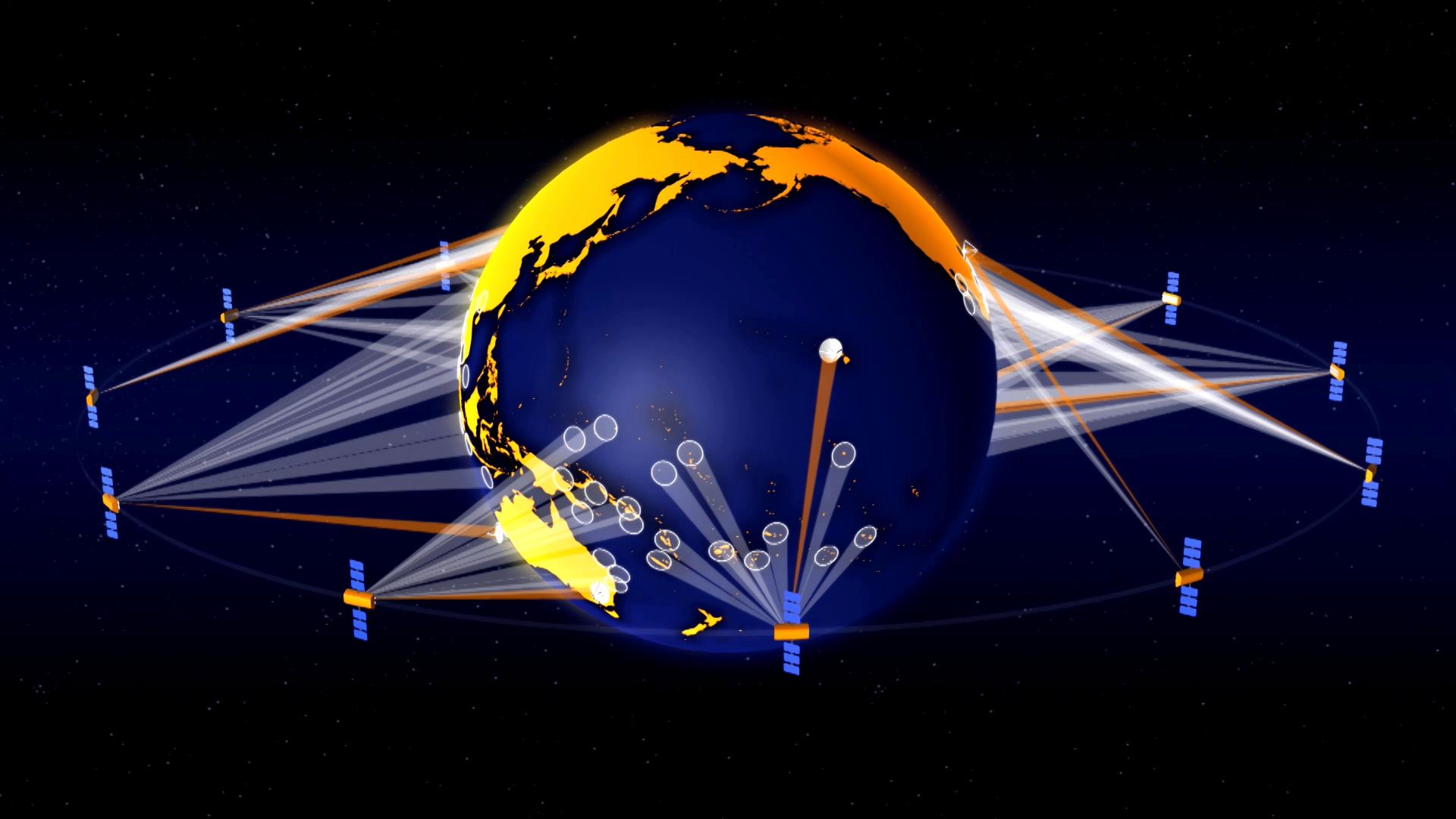Samsung makes lots of things that you probably won't
realize, from professional medical technology to computerized drone guns, but a
new paper from the particular company’s Texas mind of R&D Farooq Khan Shows
exactly how widely the company is happy to think these times. Rather than
proposing a new break into consumer or maybe corporate electronics, this report
entitled Mobile Internet in the Heavens imagines some sort of constellation of
Samsung satellites orbiting the earth, providing infinite mobile internet to
all corner on the planet.
The report lays out the situation for and basic structure of
a future Samsung space-based internet program. It notes that this global demand
for data is increasing by the order of size (a multiple of ten) every five
years or possibly even longer. This means which b
y 2028, the humanoid race may
be champing through a zeta byte of data a month — or in relation to 200
gigabytes a month, for five thousand users. The plan imagines a fleet of
approximately 4, 600 small satellites would be able to provide this amount of
data — though there’s no location to what it may need to charge users to afford
it.
The for a longer time, space-based path for information
might actually be faster, if done correctly.
The longer, space-based path for information might actually
be faster, if done correctly.
The paper proposes to obtain around latency issues by
positioning the particular satellites physically nearer to Earth than prior
plans. Most modern communications satellites live in geostationary orbit, about
35, 000 kilometers above the surface, and this imposes a difficult limit on
speed caused by travel time with the data transmissions. Samsung wants to put
its constellation in Low Earth Orbit (LEO) and thus reduce this postpone —
that’s portion of the motive it needs so many satellites, since no one
individual unit will continue to be fixed over a particular patch of ground,
and they need to compensate with sheer variety of units.
To have the coverage and the bandwidth required for modern
internet utilize, the plan would require access to multiple areas on the RF
spectrum, switching between them as important to maintain an extensive and
continuous link.
The goal of planet-spanning space-based internet has
occurred a number of Big Thinkers in past times several years, just remember
Elon Musk’s SpaceX in addition to Richard Branson’s OneWeb. Facebook has
explored the net via planes, in addition to Google has its balloon project —
every person sees the probable value of owning the next-generation of global
internet. The investment can be quite safe from quick competition — if you
think maybe laying new real lines across some sort of continent presents a
higher barrier to gain access to for prospective new entrants on the industry,
try launching 1000s of satellites.
Samsung internet 3If we all leave aside the particular
impact of true philanthropy (tech the big boys certainly like thinking about
helping third-world populations, but it’s certainly not their raison d’être)
the incentive remains obvious: not only do you're free to sell high speed
internet on the remaining global bulk that still lifestyles without it, but you
also be able to bias them toward making use of your services on the web. Though
it wasn’t as linked with the launch of satellites, Facebook’s Web. Org is a
trial to achieve very similar thing: give people without adequate access to the
internet some sort of subsidized version of it, in exchange for the opportunity
to expose them in your version of the net, first.
 Earlier attempts to set the internet in space have many
failed. Bill Entrances backed the Teledesic project, which proposed many
hundred satellites, while Iridium in addition to GlobalStar also folded despite
proposing only a few dozen satellites just about every. In all situations, it
was the particular practical cost of installing and working the service which
tanked their aspirations; for Samsung, SpaceX, or OneWeb to discover any real
good results for these plans, they’ll need an extremely economical launch
system. A space elevator would be ideal, letting them schlep huge amounts of
technology into space very easily.
Earlier attempts to set the internet in space have many
failed. Bill Entrances backed the Teledesic project, which proposed many
hundred satellites, while Iridium in addition to GlobalStar also folded despite
proposing only a few dozen satellites just about every. In all situations, it
was the particular practical cost of installing and working the service which
tanked their aspirations; for Samsung, SpaceX, or OneWeb to discover any real
good results for these plans, they’ll need an extremely economical launch
system. A space elevator would be ideal, letting them schlep huge amounts of
technology into space very easily.
Until then, however, cost will remain the greatest
impediment to any initiative like this. Selling the internet in India and
Africa will need a low screen to entry, while launch to space remains one of
the more expensive plans it’s possible to aim. The hope is that this sheer
volume of prospective customers will offset the complete cost — plus the
telecom world will surely be stronger if they’re right.


Very interesting article !!!
ReplyDeleteThank you so much
Delete